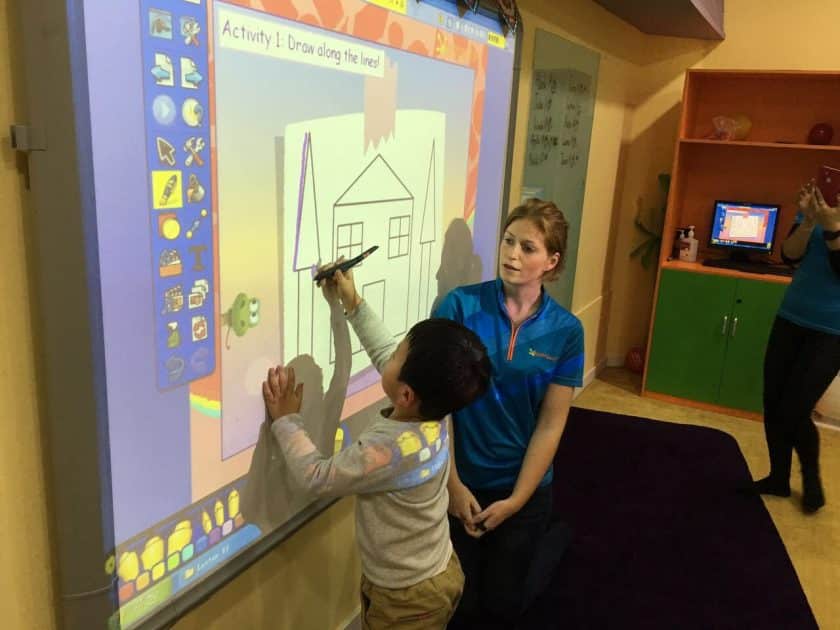Which of the Following Is Not a Characteristic of Reading Fluency?
Published 21st June 2017

Office and bundle of beingness an English language as a Foreign Language instructor is lesson planning, which, unfortunately, is a necessary evil. In the EFL classroom, there are a lot of different factors to consider when making a lesson plan best suited to your students. It can be tricky to know which activities are optimal to achieve the aims of your lesson. One consideration that often trips us up is when nosotros should be focussing on accuracy or fluency. So, accuracy and fluency: what's the large bargain?
When you think about it, when y'all're didactics English language as a Foreign Language at that place are a lot of balls you need to juggle. You demand to have a solid grasp of English grammer, an understanding of teaching techniques and theories of learning, a skilful idea of all-time practices when information technology comes to classroom management, a good dose of creativity – not to mention bucket-loads of patience. So it's not surprising to know that there are certain aspects of the job which we tin still find puzzling.
Accuracy and Fluency
Which is precisely why we're hither!
Let'due south look at the divergence between accuracy and fluency in the EFL classroom – and why it actually matters – then you can be more confident in your education skills, and together we can conquer the world!
…or only teach better, only whatever.

What is accuracy in the EFL classroom?
Accuracy refers to how right learners' use of the linguistic communication organisation is, including their use of grammer, pronunciation and grammar.
In other words, accuracy is the right use of tenses, verb forms, collocations and colloquialisms, amongst other things.
Accuracy activities are activities which will concentrate on the nitty gritty of the language construction to ensure that the language item is produced 100% accurately – such as grammar exercises, gap fills, drilling or noticing activities. These ordinarily take place in the controlled practice stage of the lesson. In that location is not a lot of variation in these activities, as in that location is a right and a wrong answer.
For many EFL learners, accurateness is considered very important, and ane of the main responsibilities of an EFL instructor is idea to be to right errors and ensure the highest level of accuracy. All the same, while of course a certain caste of accuracy is needed for all communication, classroom tasks should not be geared towards more accuracy activities than fluency, because fluency is just as important.
What is fluency in the EFL classroom?
Fluency refers to how well a learner communicates pregnant rather than how many mistakes they brand in grammer, pronunciation and vocabulary.
In other words, the ease with which a learner can speak and how well they can communicate without pauses or hesitations, without needing to search for words or phrases, without having to consider the linguistic communication of what they are about to say.
It'due south important to notation that a person who is fluent may non necessarily be 100 % accurate but they are mostly still comprehensible.
Fluency activities focus non so much on how the students are communicating simply what they are communicating. Examples of fluency activities are conversations, roleplays, debates and projects.
And then what's the big deal?
In many EFL classrooms, the free practice stage is the last in the lesson. Most of the lesson time is defended to presenting the target language and ensuring the students are able to produce it accurately and appropriately. The free do is stuffed into however many minutes are left in the lesson. Because of this, if a lesson is running late or the teacher runs out of time, information technology is this stage which is shortened or even cut entirely.
This is problematic for a number of reasons, not least considering it is often the phase the students enjoy the most. And why wouldn't they? It's a chance for them to speak freely without worrying nearly their linguistic communication. Instead they can focus on the content of what they are proverb, which is why we communicate in the first place!
At the same time, this focus on accuracy is misguided, as accurateness is by no means more important than fluency. In fact, a student who is more fluent than accurate can be more successful at communication than someone who is more accurate than fluent.
This is because advice is a fluid concept which involves more than one participant, and the other participant may still be able to empathize the communication even if the rate of accurateness of the speaker is not very high.
Accuracy vs fluency in the EFL classroom
Our learners want to learn to speak English in order to communicate. And if we boil it down to one matter, communication is about being understood. To get all fancy and technical, communicative competence is existence able to make utilise of vocabulary and grammar and their rules appropriately in social club to convey a bulletin. So while of class there is a demand for a sure amount of accurateness, fluency can be seen to play a bigger office in effective communication.
In your EFL lessons, try non to focus on accuracy to the detriment of fluency. Allow sufficient time for fluency activities, and this includes time for adequate preparation on the function of your students. You still demand to scaffold the activity but you don't need to give them step-by-step instructions for what they should say. If your activity is appropriate and relevant for your students, this should actually come naturally to your students, as they will have a purpose for communicating.
Speaking Activeness
In the classroom, when planning a speaking action, consider whether you will be assessing your students on accurateness or fluency and stick to that decision. If you cull to focus on fluency, don't cease your students if they make mistakes but if yous are aiming for accurateness then make sure your students are producing accurate language.
In a nutshell, both accuracy and fluency are important in the classroom and one should non exist sacrificed for the other.
This may sound uncomplicated and logical, but it'due south easy to try to incorporate elements of both accuracy and fluency into your lessons, often with the upshot that your students don't get the benefit of practising either. Instead, brand certain there are opportunities for both types of activities in your lessons to ensure your students get the best of both worlds and get exercise with both accuracy and fluency.
Source: https://www.theteflacademy.com/blog/2017/06/accuracy-vs-fluency-whats-the-big-deal/
0 Response to "Which of the Following Is Not a Characteristic of Reading Fluency?"
Enregistrer un commentaire